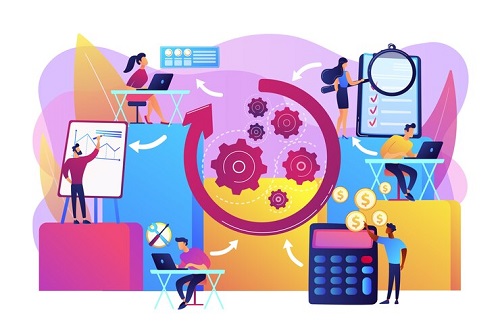The Role of Professional Consultants
In the dynamic world of business, professional consultants play a pivotal role in driving efficiency and cost savings. But what exactly do consultants do, and how can they benefit your business?
Definition and Types of Consultancy Services
Consultants are experts brought in to provide specialized advice and solutions. They come in various forms, including:
- Management Consultants: Focus on improving organizational performance.
- Financial Consultants: Offer expertise in financial planning and management.
- IT Consultants: Specialize in technology solutions and infrastructure.
- HR Consultants: Help optimize human resources and talent management.
Overview of the Expertise Consultants Bring to the Table
Consultants bring a wealth of knowledge and experience that can be transformative for businesses. Their expertise includes:
- Industry Insights: Deep understanding of market trends and industry standards.
- Problem-Solving Skills: Ability to diagnose issues and develop effective solutions.
- Strategic Thinking: Crafting long-term plans that align with business goals.
Real-World Examples of Consultancy Impact on Businesses
Consider a mid-sized manufacturing firm struggling with production inefficiencies. After hiring a management consultant, they streamlined their processes, reducing waste and saving millions annually. Similarly, a tech startup might leverage an IT consultant to implement scalable solutions, ensuring smooth growth and cost-effective operations.
Identifying Inefficiencies
One of the primary tasks of a consultant is to identify inefficiencies within a business. This is achieved through various methods and tools.
Methods Consultants Use to Audit and Identify Inefficiencies
Consultants employ several techniques to audit business operations:
- SWOT Analysis: Evaluating strengths, weaknesses, opportunities, and threats.
- Process Mapping: Visualizing workflows to identify bottlenecks.
- Benchmarking: Comparing performance against industry standards.
Case Studies of Businesses Before and After Consultancy Intervention
A retail chain facing declining sales enlisted a consultant who identified poor inventory management as the culprit. Post-intervention, the chain optimized its stock levels, leading to a 15% increase in sales and a significant reduction in holding costs.
Tools and Technologies Employed by Consultants to Diagnose Problems
Modern consultants use advanced tools to diagnose issues, including:
- Data Analytics Software: For deep dives into business data.
- ERP Systems: To integrate and manage core business processes.
- AI and Machine Learning: For predictive analytics and automation.
Strategic Planning and Implementation
Once inefficiencies are identified, consultants move on to developing and implementing strategies tailored to the business’s needs.
How Consultants Develop Tailored Strategies for Businesses
Consultants collaborate with business leaders to create customized strategies that address specific challenges. This involves:
- Setting Clear Objectives: Defining what success looks like.
- Resource Allocation: Ensuring the right resources are in place.
- Timeline Development: Establishing realistic timelines for implementation.
The Importance of a Well-Structured Implementation Plan
A well-structured implementation plan is crucial for the success of any strategy. It includes:
- Step-by-Step Actions: Detailed actions required to achieve objectives.
- Responsibility Assignment: Clear roles and responsibilities.
- Monitoring and Evaluation: Regular check-ins to track progress.
Success Stories of Strategic Planning Leading to Cost Savings
A logistics company, after working with a consultant, restructured its supply chain, resulting in a 20% reduction in transportation costs and improved delivery times.
Leveraging Industry Best Practices
Consultants bring valuable insights into industry best practices, helping businesses stay competitive and efficient.
Insights into Industry Standards and Best Practices
Consultants are well-versed in the latest industry standards and best practices, such as:
- Lean Manufacturing: Minimizing waste while maximizing productivity.
- Agile Methodologies: Enhancing flexibility and responsiveness.
- Six Sigma: Reducing defects and improving quality.
How Consultants Stay Updated with the Latest Trends and Technologies
Consultants continuously update their knowledge through:
- Professional Development: Attending workshops, seminars, and conferences.
- Industry Publications: Reading journals and reports.
- Networking: Engaging with other professionals and thought leaders.
Examples of Best Practices Leading to Improved Efficiency and Reduced Costs
A healthcare provider adopted Lean principles under a consultant’s guidance, which led to a 30% reduction in patient wait times and significant cost savings.
Training and Development
Consultants also play a vital role in training and developing employees, which is crucial for long-term success.
Role of Consultants in Employee Training and Skill Development
Consultants design and deliver training programs that upskill employees in areas such as:
- Leadership Development: Preparing future leaders.
- Technical Skills: Enhancing proficiency in specific tools and technologies.
- Soft Skills: Improving communication, teamwork, and problem-solving abilities.
Long-Term Benefits of Upskilling Staff
Investing in employee training yields long-term benefits, including:
- Increased Productivity: Skilled employees perform tasks more efficiently.
- Higher Employee Retention: Training opportunities boost job satisfaction and loyalty.
- Innovation: A well-trained workforce is more likely to innovate.
Success Metrics from Training Programs Initiated by Consultants
A financial services firm saw a 25% increase in productivity and a 15% reduction in employee turnover after implementing a consultant-led training program.
Continuous Improvement and Monitoring
The journey doesn’t end with implementation; continuous improvement and monitoring are essential for sustained success.
Importance of Ongoing Monitoring and Adjustments
Continuous monitoring allows businesses to:
- Identify New Issues: Spotting problems before they escalate.
- Measure Progress: Tracking performance against goals.
- Make Adjustments: Tweaking strategies as needed.
Tools and Frameworks for Continuous Improvement
Consultants use various tools and frameworks, such as:
- Balanced Scorecards: Measuring performance across multiple dimensions.
- Kaizen: Fostering a culture of continuous improvement.
- PDCA Cycle: Plan-Do-Check-Act for iterative improvements.
Stories of Businesses That Have Benefited from Sustained Consultancy Relationships
A manufacturing company maintained a long-term relationship with a consultant, leading to continuous enhancements in production processes and a steady increase in profitability.
Return on Investment (ROI)
Finally, calculating the ROI of hiring professional consultants is crucial for understanding their value.
Calculating the ROI of Hiring Professional Consultants
The ROI can be calculated by comparing the cost of consultancy services to the financial benefits achieved, such as:
- Cost Savings: Reduction in operational expenses.
- Revenue Growth: Increase in sales and market share.
- Efficiency Gains: Improved productivity and reduced waste.
Short-Term vs. Long-Term Financial Benefits
While some benefits are immediate, such as quick cost savings, others are long-term, including sustained growth and competitive advantage.
Testimonials and Data Showcasing Significant Cost Savings and Efficiency Gains
Businesses across various industries have reported significant gains. For instance, a retail company saved $2 million annually after a consultant optimized their supply chain, while a tech firm saw a 40% increase in productivity following a consultant-led digital transformation.
Unlocking efficiency through the expertise of professional consultants not only saves money but also positions businesses for sustained success and growth. By leveraging their insights, tools, and strategies, companies can navigate challenges, seize opportunities, and thrive in an ever-evolving marketplace.



